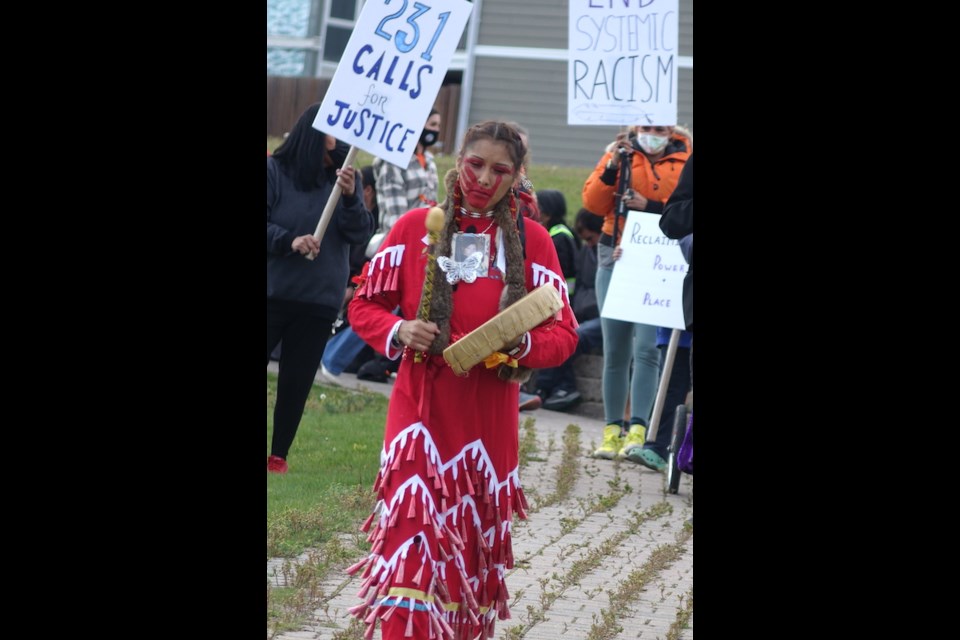Manitoba marked the fifth Missing and Murdered Indigenous Women and Girls (MMIWG) Awareness Day Oct. 4, remembering more than 1,200 Indigenous women in Canada who have gone missing or been murdered since the 1980s.
In Thompson, Manitoba Keewatinowi Okimakanak (MKO) hosted a memorial walk and candlelight vigil for MMIWG as well as two-spirit, lesbian, gay, bisexual, transgender, queer, questioning, intersex and asexual plus (2SLGBTQQIA+) people and survivors of gender-based violence.
“The alarming rates of violence experienced by Indigenous women, girls, and 2SLGBTQQIA+ people is a crisis in Canada and has been deemed genocide by the National Inquiry into Missing and Murdered Indigenous Women and Girls’ final report,” said Hilda Anderson-Pyrz, director of MKO’s MMIWG liaison unit. “As a country we must act collaboratively to end this genocide. Today is a day for all governments and Canadians to commit to sustainable action in ending all forms of violence against Indigenous women, girls, and 2SLGBTQQIA+ people.”
Among the speakers at MacLean Park in front of Thompson City Hall, mere metres from where the body of a woman reported missing a few days earlier was found Sept. 24, was Vanessa Tait, a two-spirited woman from O-Pipon-Na-Piwin Cree Nation, or South Indian Lake. She recounted the struggles and discrimination she had faced after completing university, returning to her community and being elected as a councillor.
“I had to leave after about six months into the term,” she said. “I experienced sexual harassment and bullying at that time. I tried to address it. I was not heard at the table and outvoted by my colleagues. I was disappointed in myself for a long time because I walked away but I did this to save myself. I couldn’t bear it any more and if I didn’t leave my spirit would be torn and thoughts of hurting myself lingered because I couldn’t understand what was going on. The oppression and exclusion of two spirited LGBTQQIA+ relatives ends here and my voice and my many two-spirited relatives’ voices will no longer be silenced or excluded.”
Tait said colonial attitudes and settlers’ religious views influenced how Indigenous people see 2SLGBTQQIA people now, compared to in the past when they were considered medicine people, visionaries and warriors.
“As the grand chief of MKO I have the political will to support the creation of mechanisms for Indigenous women and girls, 2SLGBTQQIA+ people, and survivors of gender-based violence to reclaim their power and place,” said MKO Grand Chief Garrison Settee, who played a drum during he walk from MKO’s office to MacLean Park. “This requires collaboration from all levels of government and organizations and must be led by impacted family members, survivors of gender-based violence, and 2SLGBTQQIA+.”
The provincial government, which declared Oct. 4 as MMIWG Awareness Day in 2017, provided $50,000 to support various events and initiatives marking the occasion throughout the province.
“Our government is committed to advancing reconciliation and to bring greater awareness to the prevention of violence toward Indigenous women, girls and two-spirited individuals,” said Manitoba Indigenous Reconciliation and Northern Relations Minister Alan Lagimodiere.





